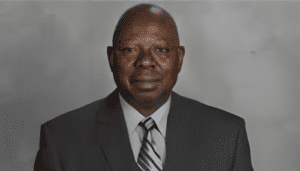Regulating social media to guide youths towards peace building
Can the social media space be regulated in a manner that it will give young people the opportunity to unleash positive energy on the society without stifling their voices? Experts say it is possible.
Youths constitute the bulk of those who use the social media space for interactions, empowerment and self-actualisation.
They have leveraged advancements in information and communication technology as a medium of communication. Among the leading social media in Nigeria are Twitter, Facebook and Instagram.
While youths may have limited political power to champion their views they can harness the potential in the social media to promote peace in the Nigeria.
Although the social media has its own negative sides, it also comes with numerous advantages, such as facilitating access to mentorship, socialization and creativity.
Through its networking mechanisms, social media spreads news faster than and has wider reach than the conventional media.
It encourages group participation in discussions and activities thereby providing a platform to push critical information and nurture ideas.
Youths can take advantage of this unique social propagate positive atmospheres such as peace and nation building.
While many young people have used social media to create wealth, education and sourcing information and entertainment, many have used it to propagate violence conducts and other social vices.
Experts say the Federal Government has a role to play in re-channeling youths’ social media culture and orientation from the negative to the positive through proper regulation.
The federal government is cognisant of this as demonstrated by the Minister of Information, Alhaji Lai Mohammed.
In June 2021 while appearing before a public hearing organised by the House of Representatives Mohammed asked the lawmakers to amend the National Broadcasting Commission (NBC) act to empower the agency to regulate social and online media.
The Minister said: “Internet broadcasting and all online media should be included in this because we have a responsibility to monitor contents, including Twitter.”
Similarly, in June the National Information Technology Development Agency (NITDA) also announced a draft document for the Code of Practice for Interactive Computer Service Platforms/Internet Intermediaries and Conditions for Operating in Nigeria.
The code seeks to, among many others, compel online platforms to provide any backend information to assist government agencies for the purpose of investigating and prosecuting users who breach the provisions of the code.
Reinforcing these thoughts, Dr Bakut Bakut, Director-General, Institute for Peace and Conflict Resolution, IPCR, said: “Preventing the conflict of tomorrow means changing the mindset of the youth today.”
Bakut, who said this while delivering an address of welcome at a conference in Abuja recently, said the youth could be redirected to use the social media as a tool for peace building.
According to him, youths use social media more frequently and are more likely to become victims of violence and can also be recruited by extremists.
The two-day conference, which was organised by IPCR in collaboration with the University of Ilorin Centre for Peace and Strategic Studies, CPSS, had as its theme, “Youth, Social Media and Community Peace building.”
“This is a significant issue because technology can either be a medium through which terrorists recruit young people or a means through which young men and women can help in building peace.
“Although young people are crucial players in peace building, they have been excluded from the process and are instead thought of as ‘manipulable’ tools for violent conflicts and social unrest,” he said.
Bakut recalled the #EndSARS protest of October, 2020, which was organised by Nigerian Twitter users largely made up of youths against police brutality.
He said it demonstrated that social media was dangerously spiraling out of control and a breeding ground for fake news, hate speech, misinformation and online incitement of unrest, hence the need to regulate it.
He said the conference offered opportunities for fresh ideas to gain the youth’s support for community peace building initiatives and incorporating social media, especially given the current insecurity concerns in Nigeria.
Prof. Sulyman Abdulkareem, the immediate past Vice-Chancellor, University of Ilorin, while corroborating Bakut’s view said regulating social media would curb online abuses and engage youths to promote peace.
Speaking on the topic, “Social Media Use and its implications on Community Peace building Among Nigerian Youths,” he said that social media regulation was the best way to ensure that youths used social media positively.
Represented by Prof. A.L. Azeez, Dean, Faculty of Mass Communication, University of Ilorin, Sulyman said the social media must be regulated if the youth’s recklessness in using social media space would be drastically curtailed.
“How can we make the youth to use the media positively; to empower themselves while at the same time deploying it for peace building? The best way is by controlling and regulating the social media space.
“The regulation and control of social media space on grounds of humanity, peace and security are ostensibly plausible as such justifications have been invoked in Pakistan, Malaysia and India.
“This is why many scholars of communication and peace have intensified their support and agitation for a legal framework for regulating Nigeria’s social media space through the social media bill,” he said.
The Former Vice-Chancellor said that social media platforms should be used to facilitate virtual dialogues among stakeholders towards achieving peace and security.
“The youth’s use and adoption of social media should be aimed at promoting peaceful coexistence among various ethnic groups.
“Through social media, the Nigerian youth should build strong consensus on issues that affect their lives and wellbeing.
“No meaningful socioeconomic and human development can take place in a nation where its youth are preoccupied with sharing divisive and inciting rhetoric on social media,” the don said.
Prof. Eghosa Osaghae, the Director-General, Nigerian Institute of International Affairs (NIIA), underscored the need to directly engage the youth on peace building.
“One of the ways that we can push these kinds of conversations concretely, going forward, would be to invite the youth to be part of this kind of debate,” he said.
According to him, the Nigerian policy paper defines the youth as someone who is between the age of 15-30, which means he or she is under custody and not yet autonomous.
“I will however extend that definition to mean that the youth is a social category, so a youth is he or she that a particular person says he or she is, notwithstanding age.
“So if you have a consciousness of being young or old, that’s who you are. There are people who are 40 but they already feel they are old, so let it be with them that they are old,” he said.
Prof. Oyeronke Olademo, Director, Centre for Peace and Strategic Studies. University of Ilorin, urged adults to use social media platforms to counter the negative narratives about youths and the country.
“For me, curbing the excesses of the youth on social media and redirecting them to peace building, requires that older persons should flood the cyber space with positive narratives.
“This will overwhelm any negative narratives or fake news, which the youth may spread on these platforms,” she said.
Experts say while it is important to regulate the social media space caution should be applied in doing so to avoid gagging the media, infringing on free speech and fundamental human rights.




